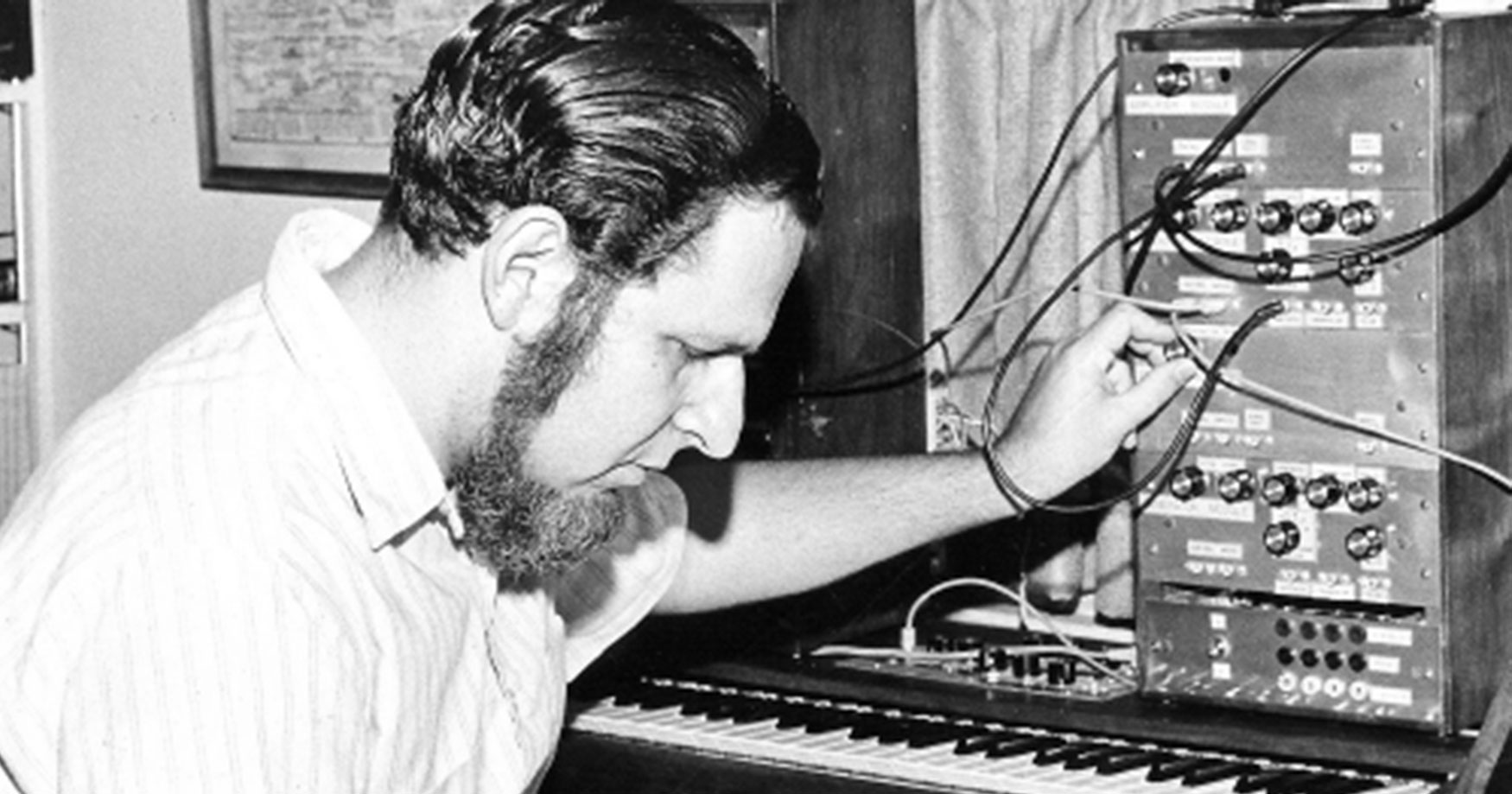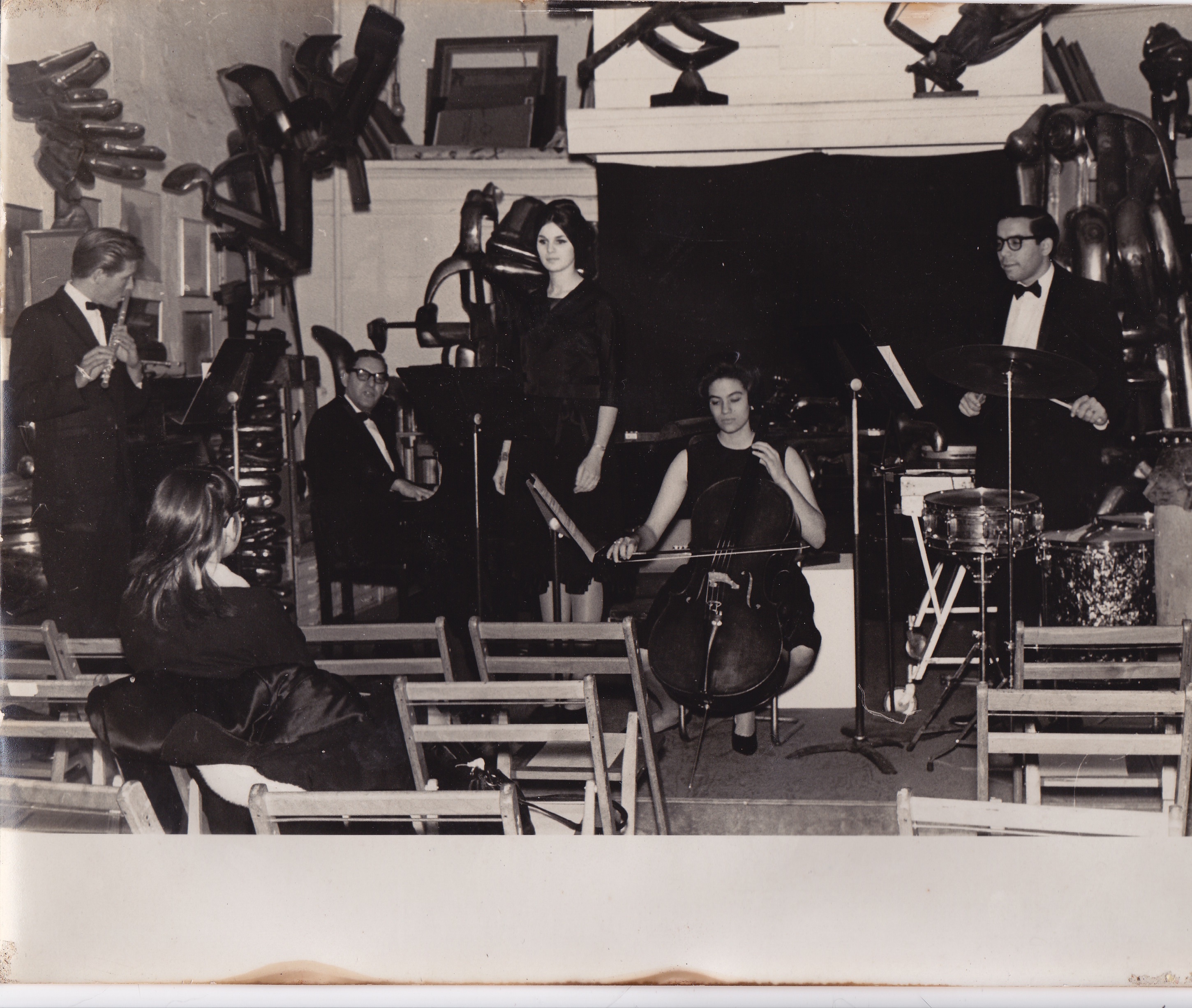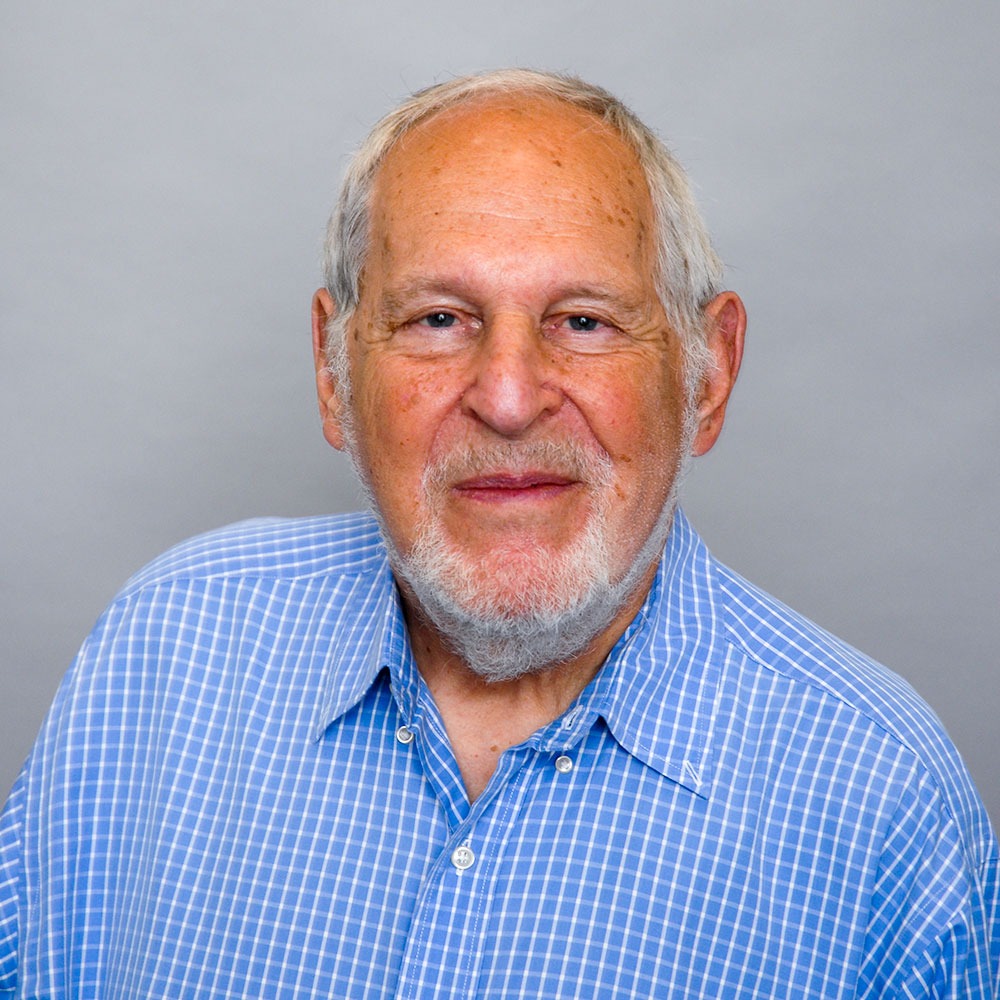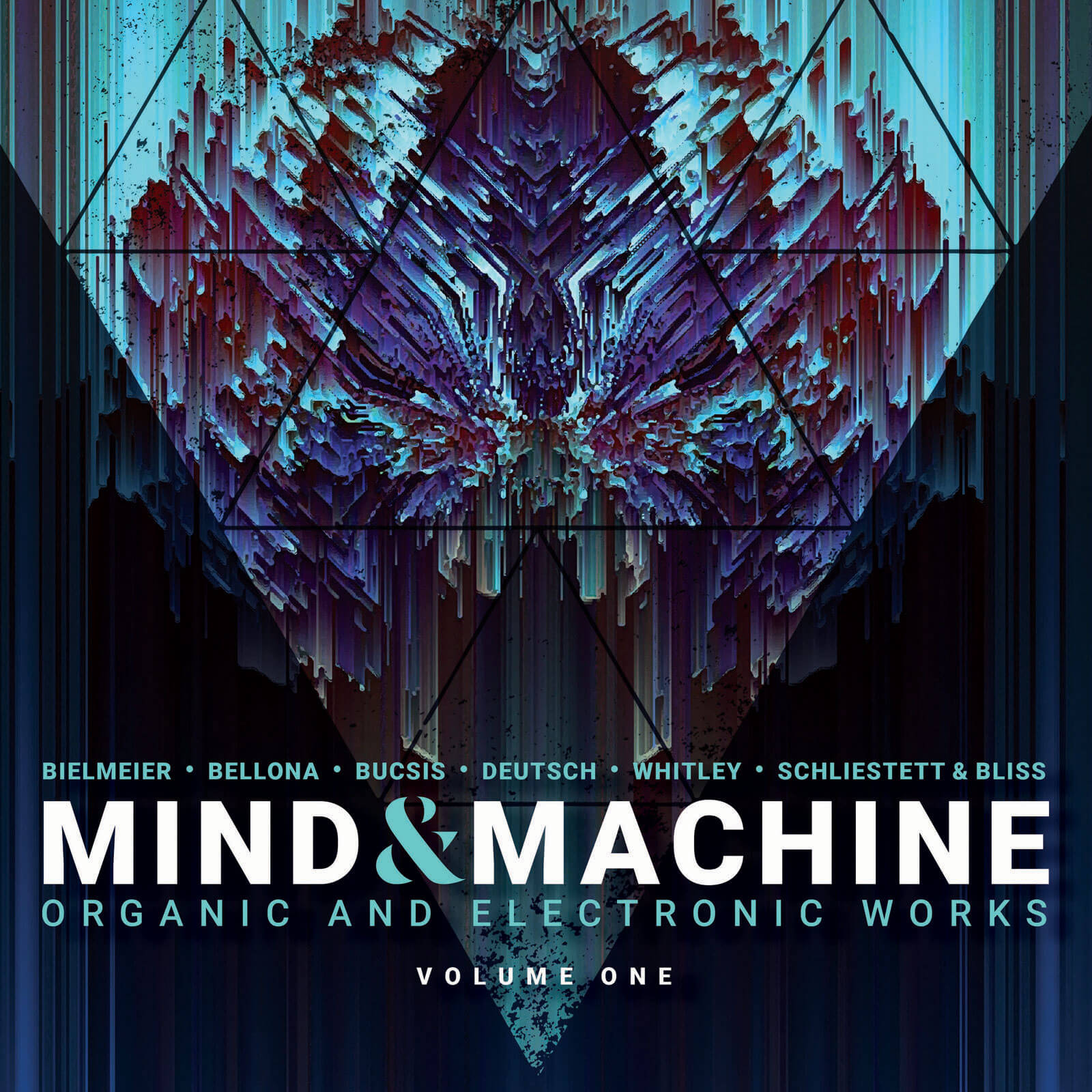
Herbert Deutsch has had an eclectic career as a composer, author, educator, and music marketing consultant. Professor Emeritus of Music and former Chairman of the Music Department at Hofstra University, he directed the Music Business Program, the Electronic Music and Recording Studios, and taught composition and multimedia. A composer of music in various media, his work has been widely performed, and his commissioned works have been featured at national and regional conferences including The Music Educators National Conference, Small Computers and the Arts Network, and The Society for Electroacoustic Music in the United States.
His interest in electronic music led him to collaborate with Robert A. Moog on the development of the first Moog Synthesizer in 1964. In September 1965, his New York Improvisation Quartet gave a Town Hall concert in New York, which included the Moog’s first live public performance. In 1969 his quartet presented the Moog’s first jazz program at Jazz in the Garden at the Museum of Modern Art. His multimedia opera, Dorian (based on the Oscar Wilde novel The Picture of Dorian Gray) received its world premiere performances by the Hofstra Opera Theater in February 1995. Since 1994, he has been a member of the NY State School Music Association’s Music Technology Committee. He is also a member and judge of NYSSMA’s Composition and Improvisation Committee. He is a regular clinician in composition sessions at NYSSMA’s All-State Conference and is a NYSSMA all-state jazz adjudicator.
Today, Herb is our featured artist in “The Inside Story,” a blog series exploring the inner workings and personalities of our artists. Read on to learn about the phenomenon that sparked young Herb’s creative journey…
When did you first realize that you wanted (needed) to be an artist?
Our garage wasn’t attached to our house. In fact, it was in the backyard, attached to the biggest chicken coop. It was a single car garage with a dirt floor that was packed hard by my father’s Hupmobile. One of the most memorable, amazing, and frightening days of my life happened in our garage when I was 3 years old. It was empty, and I was in the garage looking – as boys would – for something to do. For some reason, I had picked up a long straight stick and, holding it in my right hand, was tapping it down on the dirt floor. At some point in this meaningless action I heard a note whenever I tapped the floor. It was a C. Then I tapped the floor an inch or so to the right and heard a D. I remember being first amazed at that, and soon I noticed that if I continued to tap the stick further to the right I would hear an E, and soon it was possible to tap the stick in between those positions and hear the half-tones in between those that were fixed. For what seems now to have been a very short time, I began to tap out some melodies of music that I recognized as well as music that was new to me. Suddenly, I stopped in terror! Of course I could not hear those actual pitches, or was the dirt floor truly magical? I remember knowing that the stick hitting the floor absolutely made the same sound wherever it struck. I can still remember that day as if it were minutes ago. Because I also remember that the stick hitting the floor sounded pitches – clearly and absolutely! Terrorized, I ran crying out the back door of the garage and into the house. Fortunately my mother was there to calm me, but she couldn’t explain what I actually had experienced. All she knew was that she had recently showed me notes on our old piano. Shortly after that, she called up the 16 year old daughter of our shoemaker and asked her to come and give me a piano lesson. We began within months, and I have never since doubted that I need to make music IN ANY MANNER!
Growing up, who was your favorite artist?
My family was very poor, and attempted to maintain a chicken farm. Learning the piano, composing little pieces, and helping at home kept me from really exploring the musical world, but at age 10, I kept hearing something on the radio! It was the sound of a trumpet. To explore this sound, my “successful” uncle bought me a used cornet and I discovered the beautiful sounds of Harry James!
What I discovered was not only a new musical instrument, but an entirely different approach to where this art could take me. The emotional essence of rhythmic and melodic freedom which could be combined with a new consciousness called improvisation led me into that world. Far beyond the commercial Harry James, my mind was opened to a new musical essence – JAZZ.
By the time I was in junior high school I had discovered the great artists of jazz past – trumpeters Louis Armstrong, Bix Beiderbecke, and the entire new language of Bebop, Miles Davis, and George (Dizzy) Gillespie.
What was your most unusual performance?
Having had a life filled with unusual performances related to educational, improvisational, compositional, jazz, electronic, and all areas of “new” music, it came clear to me that this experience was the most “unusual” and important. It was in January of 1964. The location was the NYC studio of sculptor Jason Seley. A New Yorker review published on Jan 25, 1964 read “a concert of Compositions and Improvisations by Herbert A. Deutsch on Seley’s sculptures – of cut and welded automobile bumpers . . . the percussionist took the stage, laid out brushes, sticks and mallets – addressed the bumper sculptures and let fly – against a background of Deutsch’s tape mix.” At the end there was frenzied applause, with shouts of “bravo!”
What else made this an unusual performance? In the audience was Bob Moog, who after first meeting me only a month before came to hear my approach to electronic music. Following the concert he and I, with our wives, went out for a late dinner and talked about the need for creating a new musical instrument. This was the intellectual birth of the Moog Synthesizer which we developed five months later!

Composer at piano during January 1964 performance. Photograph provided by composer.
If you could make a living at any job, what would that be?
I have found my dream job – and lived it!
Perhaps it has been the understanding of the many pleasures of sharing my love of music with others. Perhaps it has been the understanding of seeing that others relate to those personal artistic pleasures of mine. Perhaps it has been the discovery of the beauty and inner peace that one gets from interacting with the knowledge, needs, intellects, and emotions of hundreds of other humans. Perhaps it is to have had a life filled with heartfelt “thank you’s.”
If I had to choose another profession, it would be as a teacher of music history and performance.
What is a specific feeling you would like communicated through this piece?
The electronics of Abyss represent the drone of time . . . never changing . . . never changed . . . never controlled. Against this, a mother (the mezzo soprano) seeks to contact her schizophrenic son. Her son (the piccolo, playing a continually varied 12-tone row) can never understand or respond to his mothers questions, love, and sorrow. This recording of Abyss was done during a live performance. The mother and son move about the stage unaware of each other’s presence.

Herbert Deutsch was a composer, author, educator, and performer, and was Professor of Music at Hofstra University for 57 years. He is a composer of music in various media and his work has been widely performed, and commissioned works have been featured at national and regional conferences. In 1972, Deutsch co-founded the Long Island Composers Alliance. During his career at Hofstra, he founded Jazz Ensemble, Electronic Music Studios, New Music Ensemble, and created the B.S. Degree programs in Jazz, Composition/Theory and Music Business. He received the George Estabrook Distinguished Alumni Award in 1996 and the Hofstra Alumni Achievement Award in 2001. The Music Department has established the Herbert Deutsch Award for highest honors in Music Education.

